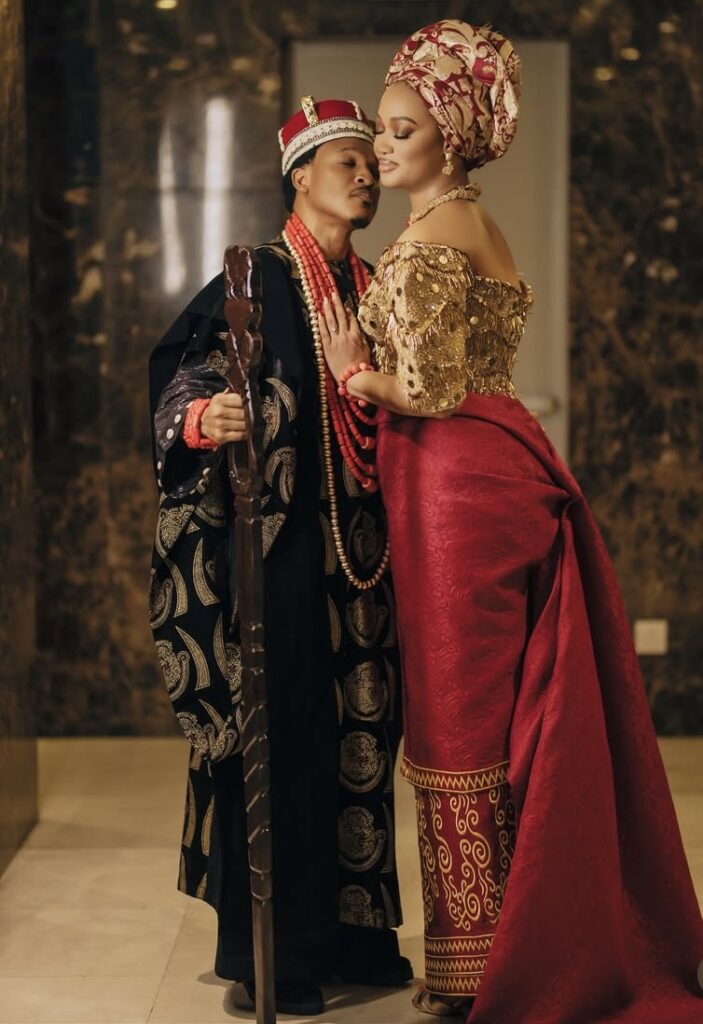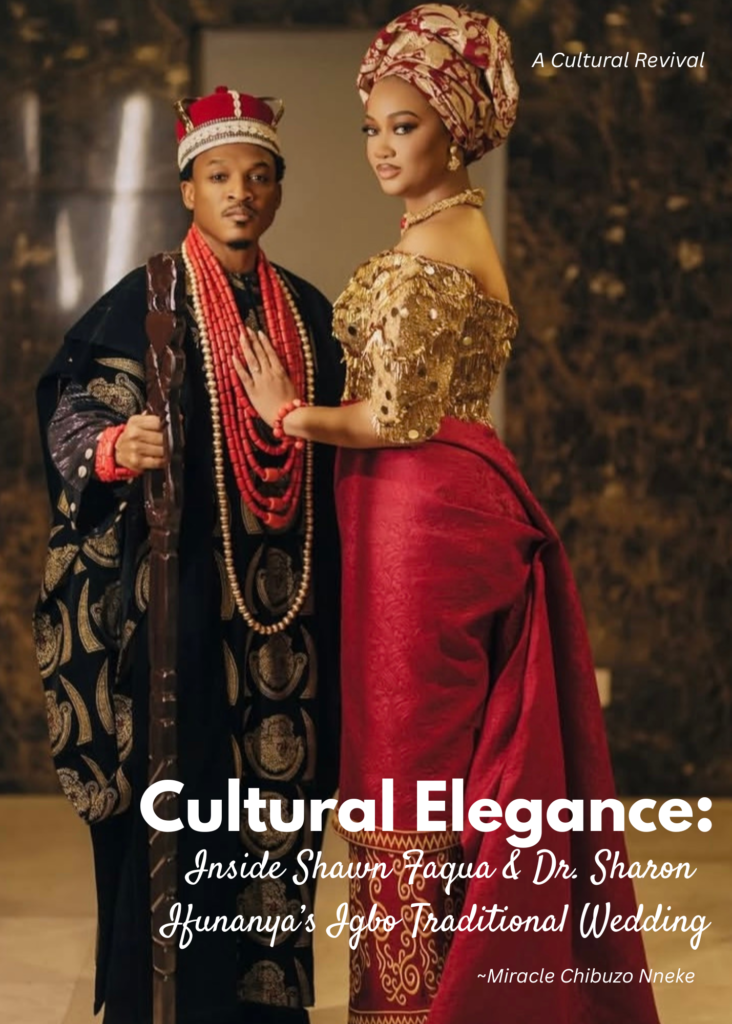There are weddings… and then there are moments in history dressed as weddings.
When actor Shawn Faqua and Dr. Sharon Ifunanya tied the knot, it wasn’t just love on display, it was culture, pride, and deep-rooted beauty woven into every fabric, every bead, every hairstyle, even the cake. This wasn’t a performance. It was remembrance. A love story embroidered in heritage.
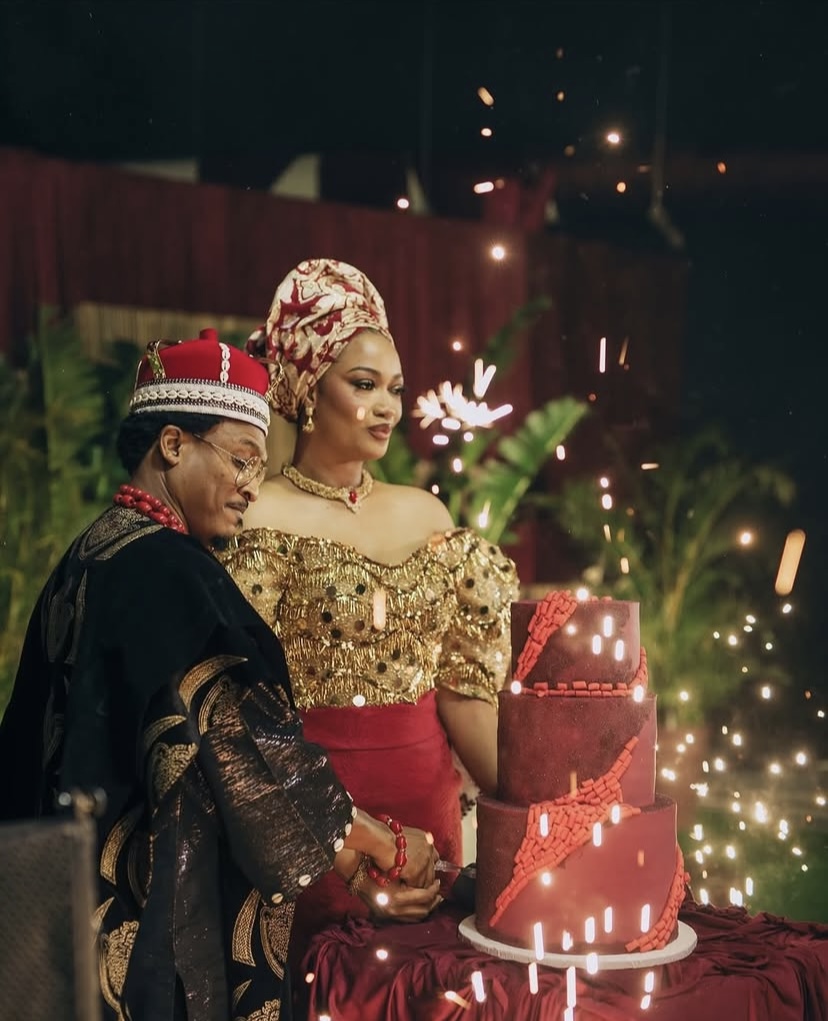
The Groom: When the Leopard Walks
Shawn didn’t just walk into the room, he arrived like an Odogwu.
Draped in a majestic Isiagu, crowned with the iconic red cap, and armed with his walking staff, he embodied what many modern men have forgotten: that our fathers once wore wrappers with pride.
The Isiagu, meaning “head of a leopard,” is more than a shirt, its legacy. In Igbo culture, it’s reserved for men of honour, warriors of wisdom, and those whose voices carry weight in the community. The lion and leopard motifs on the fabric symbolize strength, leadership, and royalty.
Once a garment of titled men, today it stands as a statement of identity, a way to say, “I am rooted. I know where I come from.”
The red-and-white outfit often sparks debate, some ask, “Isn’t that Edo or Benin attire?” But those who know recognize it, like the Isiagu that follows, as unmistakably Igbo. This combination of colors carries deep cultural meaning, symbolizing vitality, respect, and a strong connection to our roots. Traditionally, red and white ensembles are associated with Ozo or titled men, with red caps, beads, and wrappers signaling status, courage, and pride in Igbo heritage.
Every bead around his neck glowed with story. Every fold of his wrapper whispered, “This is who we are.”
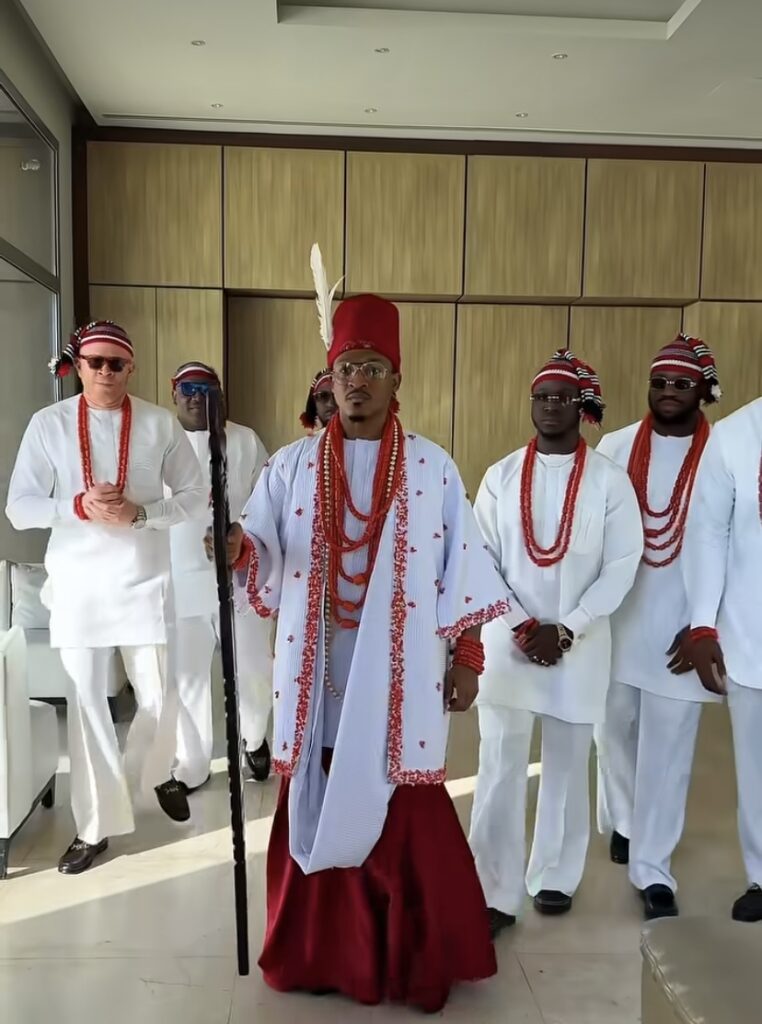
The Bride & Her Women: Beauty in the Language of Tradition
Then came Sharon, radiant, poised, and so effortlessly regal.
Her girls surrounded her, all dressed in rich Abadan gowns made from deep red fabric, the kind that reminds you of those wrappers your mother kept neatly folded in her akpati. You could almost smell the faint scent of Hollandaise and starch that once filled every home before weddings.
Their hair told its own story, natural weaving, intricate cornrows, and braids styled in patterns that our ancestors once wore before wigs became the norm. This was beauty in its purest form: unaltered, unbothered, uncolonized.
Their light makeup, the glow of their skin, and the soft swing of their wrappers made them look like walking poetry. They didn’t just wear clothes, they wore memory.
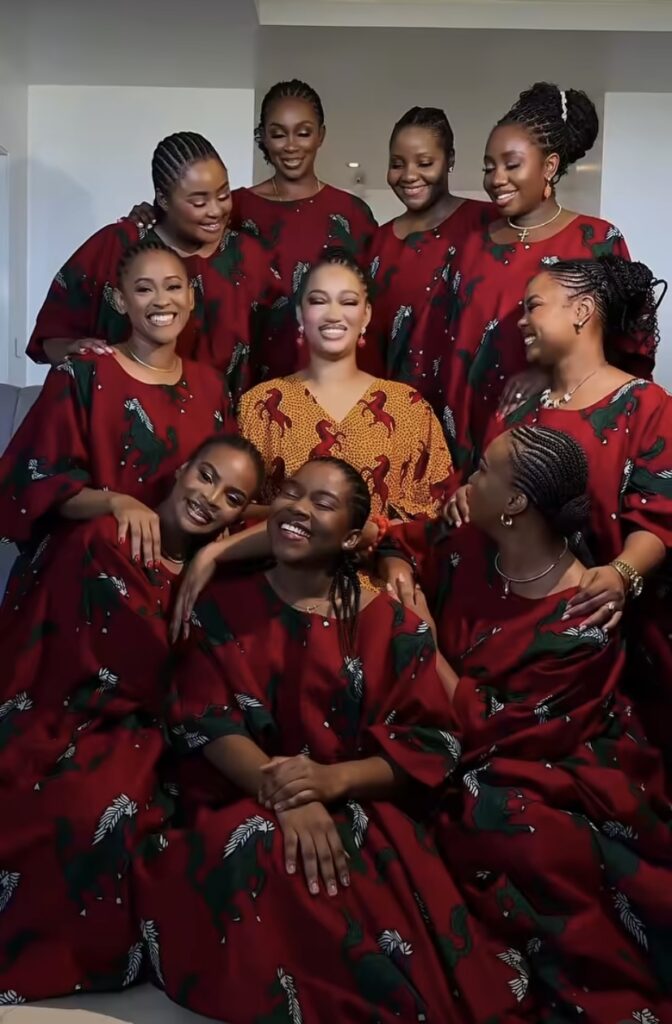
The Aesthetic: A Celebration of Roots
This wedding didn’t need glamour to shine. It glowed with meaning.
• Colors: Rich reds, glimmering golds, crisp whites, symbols of passion, royalty, and purity.
• Beads: Coral beads draped on necks and wrists, echoing strength and continuity.
• Fabrics: Heavy George and Hollandaise wrappers, thick with quality and history.
• Hair & Headwraps: Each braid and tie was an art form, an homage to generations of women who told stories through their hairstyles.
Every detail was intentional, from the way the groom’s cap sat like a crown, to how the bride’s wrapper flowed like a melody. Together, they painted a portrait of Igbo excellence.
Beyond Fashion — A Cultural Revival
In a time where many traditional weddings chase Western sparkle, Shawn and Sharon chose something deeper. They chose home.
They reminded us that the Isiagu is ours. That men tying wrappers is Igbo pride, not borrowed culture. That natural hair, coral beads, and bold wrappers aren’t “old-fashioned”, they’re timeless.
This wedding was more than a ceremony. It was a mirror, showing us who we were, who we are, and who we can still be. It brought back the smell of our mothers’ fabrics, the laughter of our aunties tying gele in front of mirrors, the rhythm of drums echoing from childhood memories.
It was a love story written in red and gold and signed in heritage.
Culture isn’t just what we inherit. It’s what we wear, what we keep alive, what we pass on.
And Shawn Faqua and Dr. Sharon Ifunanya didn’t just have a wedding, they revived a legacy.
For everyone watching, this was more than fashion.
It was a homecoming.
